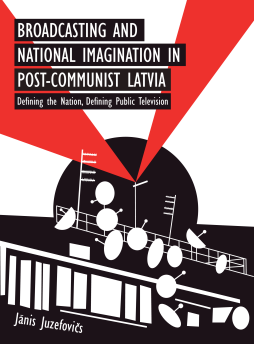
Additional Information
Book Details
Abstract
This book uses the case study of public television in post-communist Latvia to explore the question of how audiences respond to TV offerings, and how their choices can be seen as an act of agency. Jānis Juzefovičs builds his book around Albert O. Hirschman’s classic concepts of exit, voice, and loyalty—the options available to a person within any system. He uses Hirschman’s ideas, along with tools from social constructionism, to assess how the publics of both the Latvian-speaking majority and the large Russian-speaking minority have responded to the role of public television in the nation-building efforts of the new Latvian state. Along the way, he develops our understanding of public broadcasting more generally, and the way it can be used to define a national 'we'.
Table of Contents
| Section Title | Page | Action | Price |
|---|---|---|---|
| Cover | Cover | ||
| Half Title | i | ||
| Title | iii | ||
| Copyright | iv | ||
| Contents | v | ||
| Acknowledgements | vii | ||
| Introduction | 1 | ||
| Chapter 1: Broadcasting and the Construction of National ‘We’ | 17 | ||
| Chapter 2: (Not) At Home: Public TV and Its Publics of the Ethno-linguistic Majority and Minority | 41 | ||
| Chapter 3: Television News Preferences and a Sense of Belonging: The Case of Panora–ma and Vremya | 61 | ||
| Chapter 4: Celebrating the Arrival of New Year Twice: Public TV and National Celebrations | 89 | ||
| Chapter 5: Popular Culture Bringing the Nation Together: The Case of Live Sports Broadcasts and the Eurovision Song Contest | 115 | ||
| Conclusion | 131 | ||
| Appendix | 139 | ||
| References | 145 | ||
| Index | 157 | ||
| Back Cover | Back Cover |
